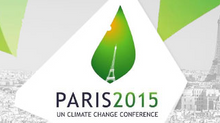COP21: The Legality and the Urgency
- Divina Li
- Dec 15, 2015
- 3 min read

The past two high-energy, anxiety-inducing weeks of COP21 or the UN Framework Convention on Climate Change finally produced an outcome document, the Paris Agreement. This agreement, adopted by consensus of 195 nations, as well as subnational governments and businesses as the most comprehensive, ambitious agreement on mitigating climate change and environmental accountability. Preceded by the adoption of the Financing for Development’s Addis Ababa Action Agenda in July and in September, the adoption of 2030 Agenda for Sustainable Development, or the Sustainable Development Goals, in the UN Heads of State summit this September, the Paris Agreement reiterates their promises of tackling poverty exacerbated by the effects of climate change and provides financing for developing countries so they can avoid the missteps of already developed countries like the US and UK whose economic power and development relied on fossil fuels. Within nations’ domestic policies and municipalities, climate and environmental protection goals and targets have been set, most famously 80% emissions reduction by 2050, which has set itself as the cornerstone for cities around the globe.
Here are the measures laid out by the Paris Agreement: monitoring of emissions and 5 year targets per country in cutting them, financing for developing countries to transition to renewable energy and live up to their commitments and targets, differentiation in responsibility by having developed countries - who are the largest emitters - take the lead on domestic and subnational initiatives to meet the goals and, finally, acknowledgement of irreversible climate damage.
Ambitious yes, consensus-based yes, transparent yes (as monitoring emissions will act as an incentive to meet the set targets), but legally binding? Not yet. Like the Sustainable Development goals that were so ceremoniously adopted, as of now, the Paris Agreement is a framework for goals, monitoring and collaboration. Positive stuff - but penally unenforceable. For example, if China fails to meet its emissions cut goal in 2035 - there is no mechanism for other nations to penalize China whether political or economic sanctions. The only means of accountability in the Paris Agreement so far is monitoring and, more bleakly, overall declining well-being of the country itself if it continues its fossil fuel dependent practices.
Adoption does not give the document legal weight, but ratification does. To be legally binding within the international sphere, 55 out of the 195 countries that adopted the agreement must ratify and nationally implement the agreement within their own governments. Those 55 countries must account for 55% of all greenhouse gas emissions.
Within the scope of the United States, an executive order by President would suffice, as the Paris Agreement is not a treaty and therefore would not need Congressional approval to act as law. While that may ruffle the GOP climate skeptics in Congress, it would be harder to overturn than the Kyoto Protocol, even under a new GOP leader. As the Paris Agreement also holds China and other rival economies accountable to its commitments as emitters, relative economic loss cannot be argued. Additionally, the Clean Power Plan, which finds its roots in the Clean Air Act signed by H.W. Bush, paved the path for the Paris Agreement.
As it stands, even as a non-binding document, this agreement is built from the backs of nationally and subnationally implemented environmental policies and initiatives - its goals and targets will still serve as a framework on which to derive environmental policy and establish partnerships to share best practices. With cooperation from major private sector entities, such as the Global Alliance for Buildings and Construction and the International Chamber of Shipping, we must also look to civil society and our municipal governments and agencies to pick up the tab in lieu of making the Paris Agreement legally binding.
As UN General Secretariat Dag Hammarskjöld famously said, “The UN wasn’t created to take mankind into paradise, but rather, to save humanity from hell.” It is up to our governments and our civil society to surpass the ambition of COP21 and bring us to heaven.



















Comments